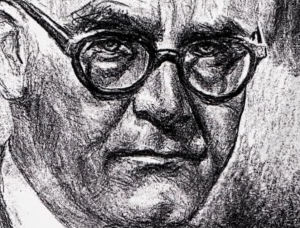 In responding to a critic of his first edition of The Epistle to the Romans, Karl Barth offers a reflection on the relative importance of simplicity in his preface to the second edition (1921). One critic dismissed Barth’s first edition of the commentary with the line “Simplicity is the mark of divinity”.
In responding to a critic of his first edition of The Epistle to the Romans, Karl Barth offers a reflection on the relative importance of simplicity in his preface to the second edition (1921). One critic dismissed Barth’s first edition of the commentary with the line “Simplicity is the mark of divinity”.
Barth’s reply is an important counter-point in our current climate in which there is a pressure simplicity in our talk of the Bible and God from lecturns and pulipts. While one may simply shrug Barth off here with a dismissive “consider the source” – and one wouldn’t be incorrect to a degree, he is on to something. And we should take these words as a caution against our current tendency within evangelical preaching to avoid nuance and particularity. God’s people who sit under our teaching and preaching become accustomed to the level of our communication about the Bible and theology.
I suppose we should teach and preach by this rule: what is simple speak simply, but what is complex (and there is more of it than we like to admit), to be truthful and honest with the text and the God of whom we speak and the people of God, must be spoken with both care and sophistication.
My answer is, that it has never entered my head to suppose that what I say or wirte is ‘divine’. So far as I am aware, divinity is set out in no book . . . The simplicity which proceeds from apprehension of God in the Bible and elsewhere, the simplicity with which God Himself speaks, stands not at the beginning of our journey but at its end. Thirty years hence we may perhaps speak of simplicity, but now let us speak the truth. For us neither the Epistle to the Romans, nor the present theological position, nor the present state of the world, nor the relation between God and the world, is simple. And he who is now concerned with truth must bodly ackowledge that he cannot be simple. In every direction human life is difficult and complicated. And if, gratitude be a consideration that is at all relevant, men will not be grateful to us if we provide them with short-lived pseudo-simplifications. Does the general demand for simplicty mean more than a desire-intelligible enough, and shared by most theologians-that truth should be expressed directly, without paradox, and in such a way that it can be receied otherwise than by faith alone? (5)










